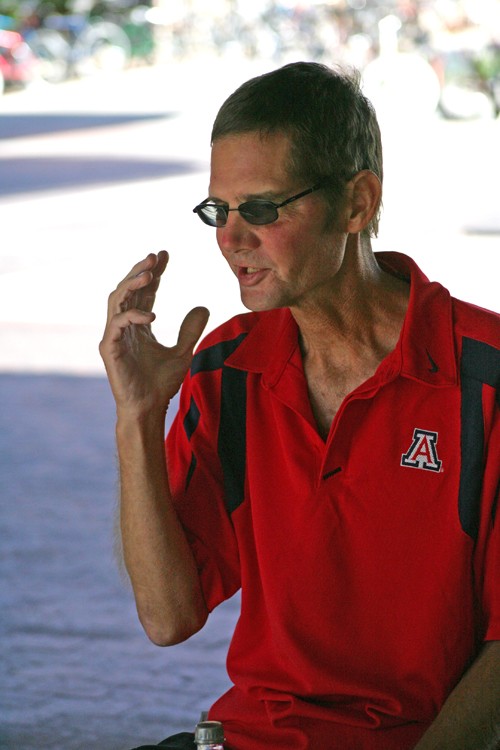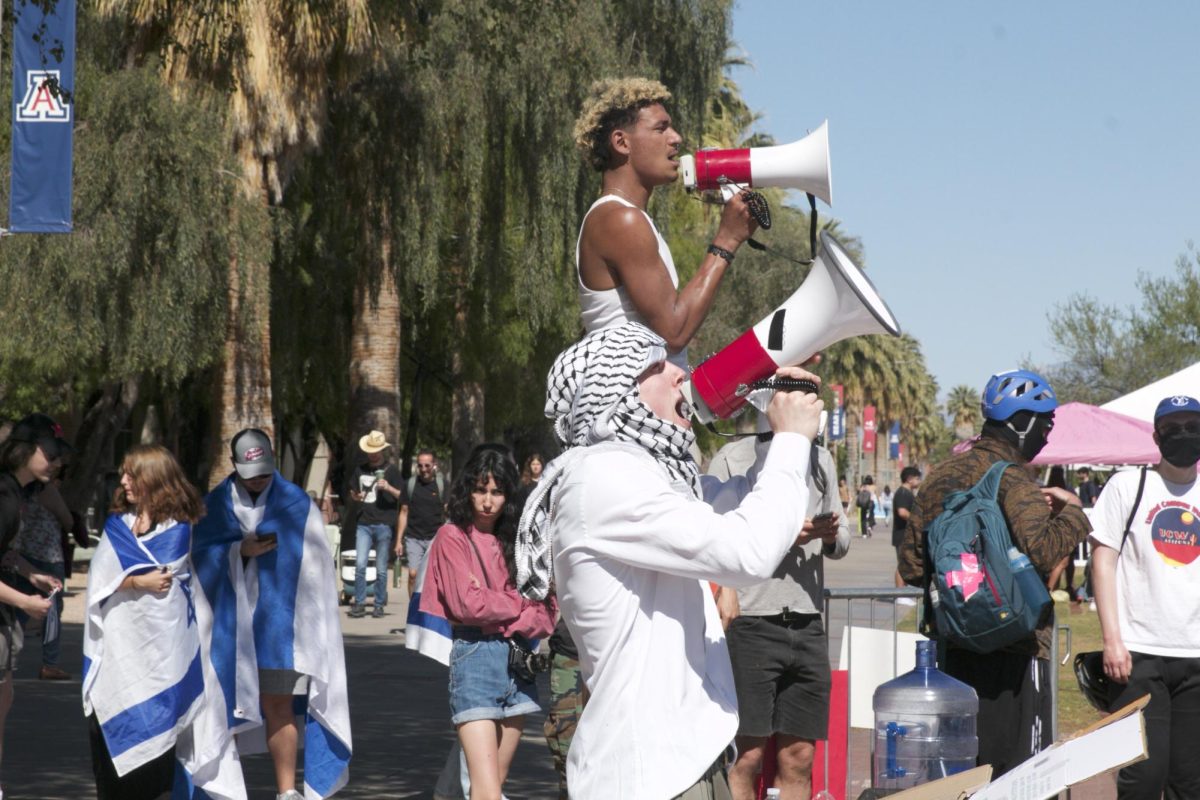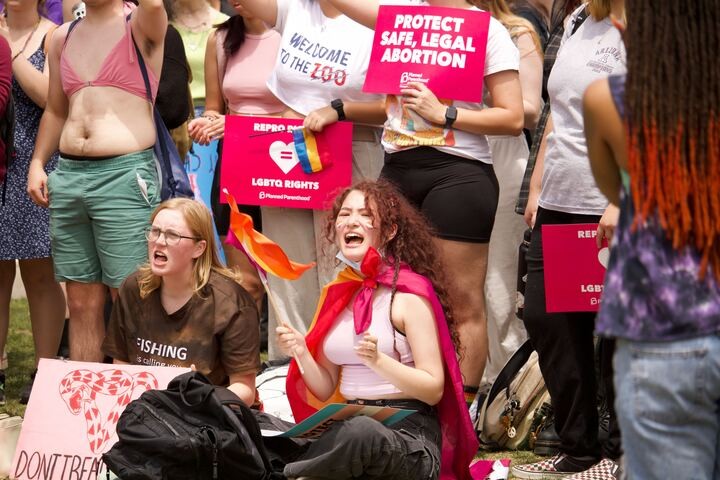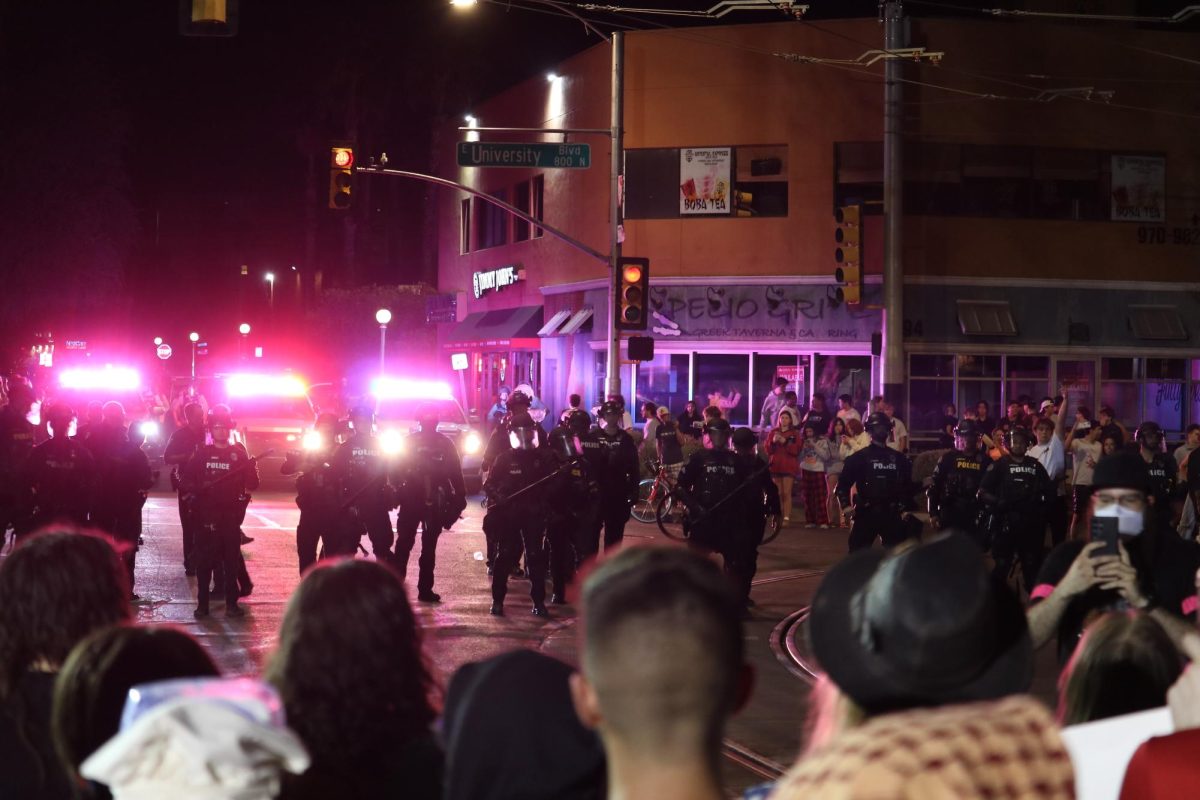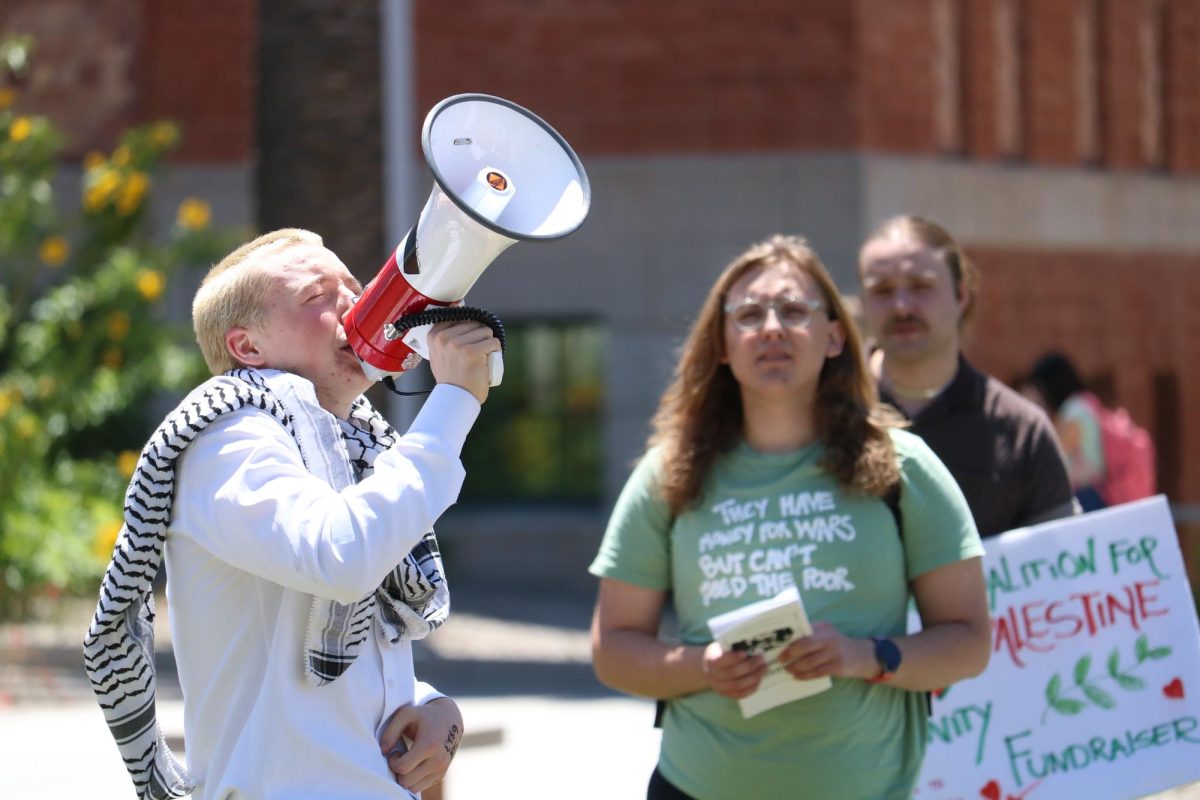Stephen Kozachik, associate director of athletics for Facilities and Capital Projects at the UA, is running against democratic incumbent Nina Trasoff in the Nov. 3 general election for the Tucson City Council. Any citizen who has lived in Pima County for a month prior to the general election, and is registered to vote, may participate in this election, according to the Pima County Recorder’s office. The Daily Wildcat sat down with Kozachik to talk about his upcoming bid for the 6th Ward city council seat. This is the first interview of a four part series with the City Council candidates for 3rd and 4th wards.
Daily Wildcat: You have been working for the UA athletic department for 21 years — it’s obviously a full time job. Why do you want to be on the Tucson City Council?
Stephen Kozachik: Because Tucson needs a change of direction. You look downtown and see projects that have started and then stopped midstream. The ones that do get finished come in over budget. You got $160 million in Rio Nuevo. What have we done with it? There is no one who can justify the 160 million based on the progress we have seen downtown. The city just had a party for opening up the Fourth Avenue underpass. I am glad they opened up the underpass, but $46 million? The project went $20 million over budget. It has left the tax payers holding the burden.
We have a business climate in this community that is absolutely sick. This council has referred to the business community as being Tucson’s forces of evil. How are you going to build a rapport with the private sector when you’re sending that kind of junk around? We’ve got to turn that around. The city relies on state and city sales tax to fund the city budget. When you are sending that kind of nonsense around there is no way you can expect to develop a rapport with the private sector. Without that, the city is done. You don’t fund core services, you don’t fund anything.
DW: What is the relationship between the university, its students and the city council
SK: One of the main things I see is in regards to student housing. There is a lot of contention around the issue of student housing and mini-dorm development. We are about to start laying the trolley tracks between the university and downtown. If we start building student housing along that route it is going to relieve the pressure on the neighborhoods. The people in the neighborhoods, they aren’t worried about construction, they don’t want students in there. We’ll guess what, that violates the Fair Housing Act that was passed 40 years ago. You can’t say I don’t want this kind of person living next to me. The problem is when both sides of the issue get in the same room they come in the room with their swords drawn. Nothing is going to happen there. My sense is, let’s encourage the city and the university to partner with the private sector to start building up student housing along that street car route to downtown and create a linkage between the UA and downtown and that link will encourage private sector development along that same route. It’s win-win for everyone.
DW: How will you go about addressing the core needs of your district if you are elected?
SK: First, you have to identify the needs of the community. The current incumbents, while they have spoken the speak, they haven’t walked the walk. That is to say, everybody recognizes by city charter (that) the core obligations of the city are public safety, transportation and open space parks. The sad fact is that they came out in 2006 with the Financial Sustainability Plan. It called out for public safety. They failed in their commitments to put public safety first. They will say the economy tanked. Well fine, when the economy tanks you pull back from all the peripheral things the city is doing and you focus on core services instead of continuing to fund everything. So that focus is what they lacked.
DW: You talked about public safety, why is this so important to push through?
SK: The financial sustainability plan reflects the minimum safety standards established by the FBI. The FBI recommended 2.9 cops per residents. The Tucson Police Officers Association negotiated down to 2.4 with this mayor and council. We are paying for crime in this city, we are paying for the 2.4 right now based on Tucson being ranked 190 out 200 by Forbes magazine for crime rate. That’s a disincentive for private sectors to come into this community. I work for athletics, and we are all about recruiting. If you are trying to recruit a private sector into an area, one of the main things they look at is the crime rate. If you are known as a high crime rate city then they are going somewhere else.
The other thing is this, we had 79 murders in this community last year, you tell me which of those families I should go too and say, “”You know what, I am sorry about the loss of your family member, but we had other budget priorities.”” Those are hidden taxes, so we are paying for it now. This area around campus has a pretty high crime rate. We are a better community than that. That’s the way we have to do it if we are going to be a compassionate community. We are not going to get private sector business and growth in this community. We are not going to be able to fund the city budget as long as we have that image and label.
DW: Do you see all of these issues as being linked?
SK: Definitely. Back to my athletics metaphor. One of the things that are really tough for us in athletics right now is funding facilities for recruitment. We are looking into doing an upgrade on the stadium. The only reason we have to do that is that we are competing with ASU and other institutions for top Division I recruits. They come in here and see what we got. And they go and see what ASU and other colleges got and they’re comparing them. A business looking at Tucson as a place to move their enterprise is going to look at all the factors. Number one, consistently, is what is your crime rate. (Business owners) are not interested in opening up a business at five o’clock at night because their employees are afraid to walk to their car.
DW: What about infrastructure?
SK: That’s another thing that (the current City Council) turns their back on. We have got $30 million set aside in this budget for road repair and not one penny of it is designated for residential work. How do you call that a core service when you’re not going to do anything about the potholes in your neighborhood. It’s the mistake they make when they say these are our core services by charter and then, when the economy starts to tank, instead of focusing back in on those it’s continuing to try to treat everything as equal. That’s the mistake they make. If you are having a tough time with your paycheck, the last thing you are going to do is go off and by CDs. You are focused on the refrigerator. It’s a lack of focus.



